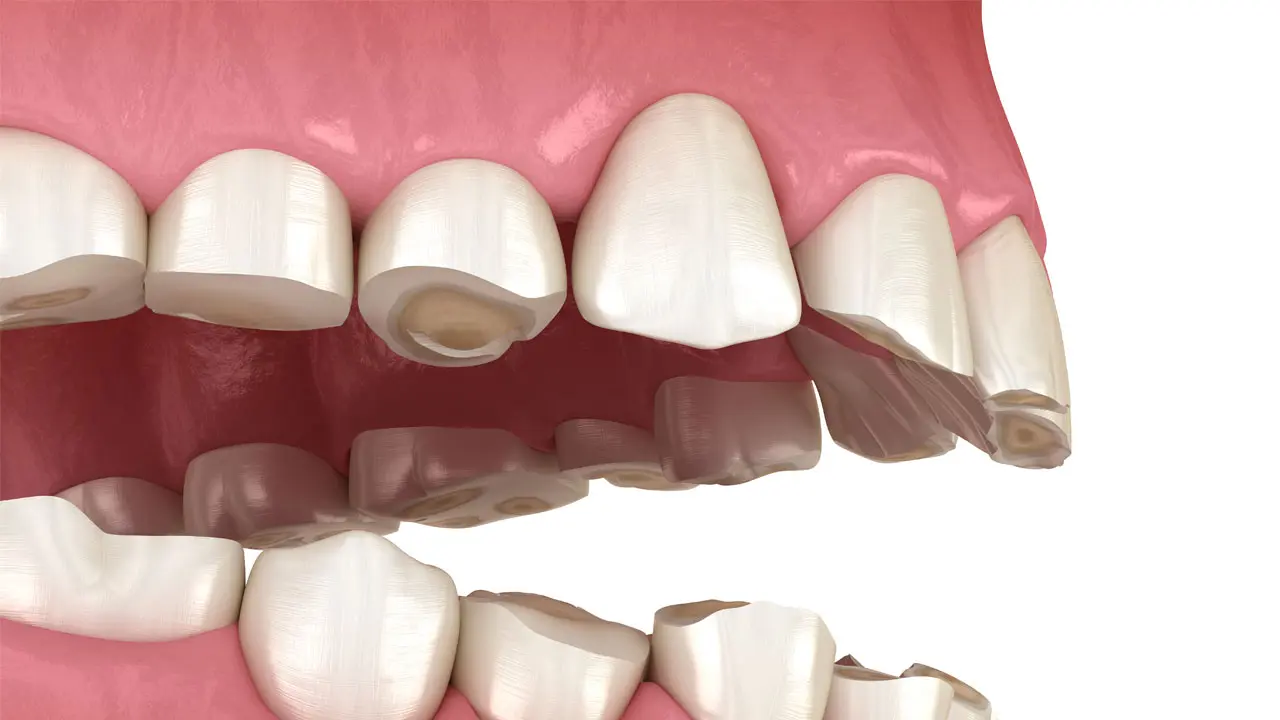
Are you waking up with a sore jaw and aren’t sure why? You may be suffering from bruxism. In fact, an estimated 10 percent of people in the U.S. have bruxism. The trick is that many people don’t even realize they have it. Left untreated, bruxism can do serious harm to your teeth and your jaw, making early diagnosis important.
But what is bruxism, and how do you know if you have it? It isn’t always easy to know if you have bruxism, but knowing the symptoms can help in early diagnosis. In the sections below, we’ll help you understand everything you need to know about bruxism.
What causes bruxism?
Bruxism can be caused by a variety of genetic, physical, and psychological factors. The Mayo Clinic lists the most common factors for bruxism as:
- Prolonged periods of stress, anxiety, anger, or frustration
- Frequent use of tobacco, carbonated beverages, and alcohol
- Use of certain antidepressants or medications
- A family history of bruxism
- Mental health or medical disorders such as dementia, ADHD, epilepsy, and GERD
Another potential factor to consider is your age. Young children are particularly prone to developing bruxism, although many grow out of it by the time they reach young adulthood.
What are the most common symptoms of bruxism?
Bruxism describes subconsciously grinding, clenching, or gnashing your teeth. Many dental patients suffer from sleep-related bruxism, which means you may be clenching your teeth in your sleep and not even know it. So, what sorts of symptoms should you be on the lookout for? While every patient is different, a few of the most common bruxism symptoms are:
- Frequent headaches
- Increased tooth sensitivity or pain
- Pain or soreness in the neck, face, or jaw
- Chipped, fractured, or flattened teeth
- Exposed tooth layers caused by worn enamel
- Clicking or popping in your temporomandibular joint
- Tense facial or jaw muscles
Because bruxism often occurs during sleep, you may also suffer from sleep apnea. In fact, sleep-related bruxism is considered one of the primary risk factors for obstructive sleep apnea.
Whether your symptoms are mild or severe, it’s important to get treatment as soon as possible. Over time, bruxism can cause significant damage to your teeth, not only wearing down enamel but also causing chips and fractures. If you have dental implants or crowns, bruxism may require early (and costly) replacement.
Bruxism treatments
Bruxism treatments are tailored to your unique symptoms and causes. Some of the most common methods of bruxism treatment include:
Stress reduction techniques. Your mental and emotional state can cause you to develop bruxism, such as high levels of anxiety, stress, anger, or frustration. Stress reduction techniques like yoga, meditation, or exercise can all be effective treatments for bruxism. Many patients also see great results from keeping a daily journal or speaking with a counselor to reduce their stress levels.
Mouth guards.If you suffer from sleep bruxism, your dentist will create a custom-fitted mouth guard to wear at night. In milder cases of bruxism, you may be able to purchase an over-the-counter mouth guard instead.
Reductive coronoplasty. Bruxism may be caused by teeth that are misshapen or crowded. To address these issues, a reductive coronoplasty adjusts the biting surface of your teeth. Depending on your mouth, this dental procedure may either reshape or re-level them.
If you have jaw soreness or headaches that you can’t explain, Valley Dental Care of Plainfield can help. Give us a call to schedule your next appointment! We’ll be happy to discuss your symptoms and create the best bruxism treatment for your needs.